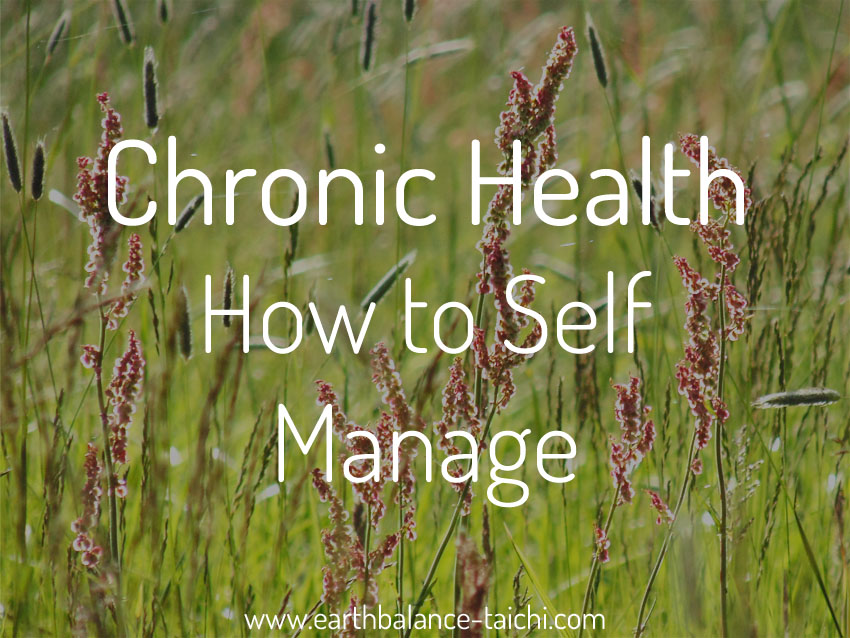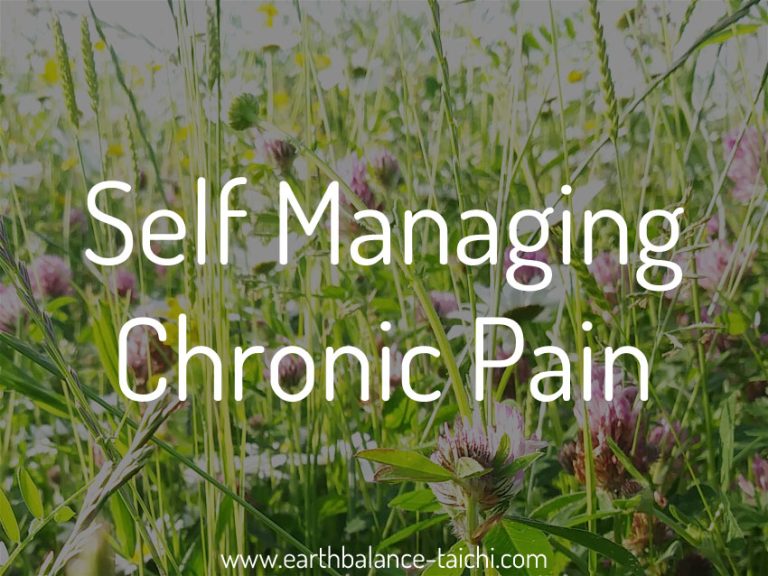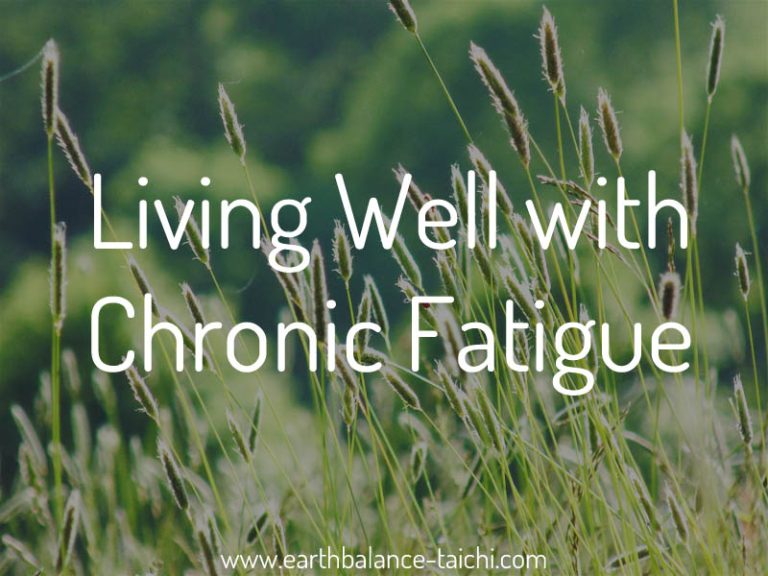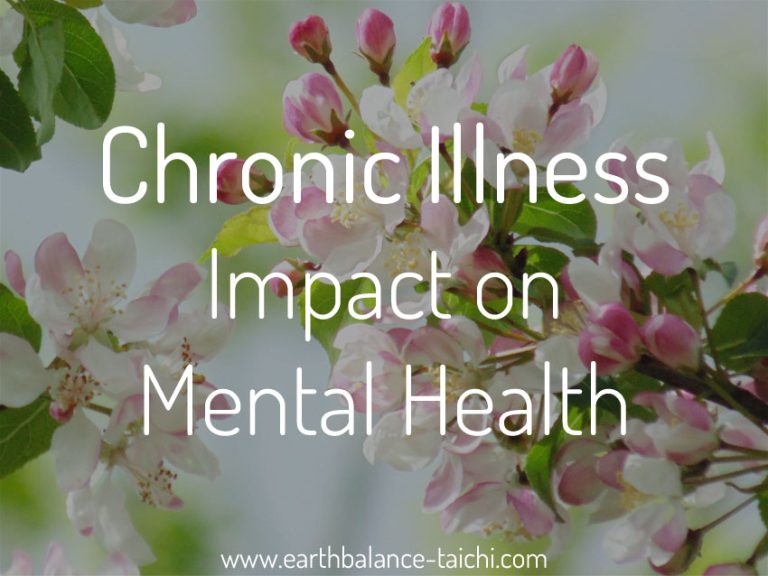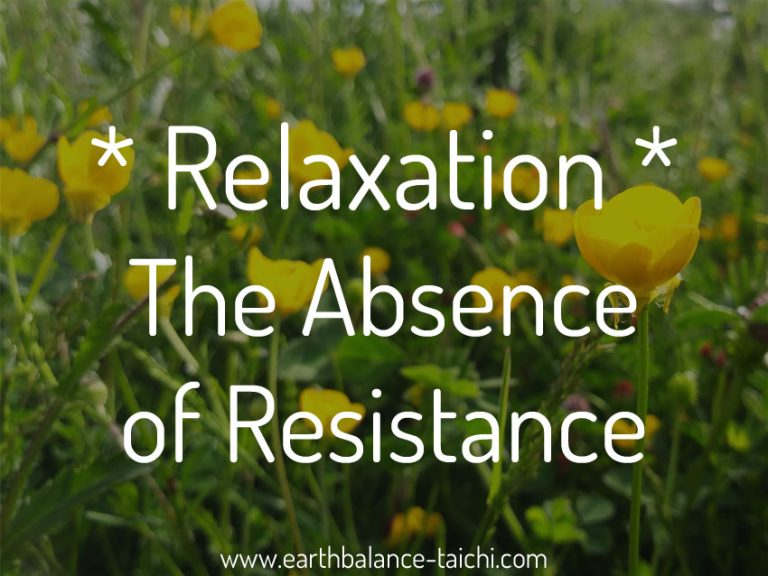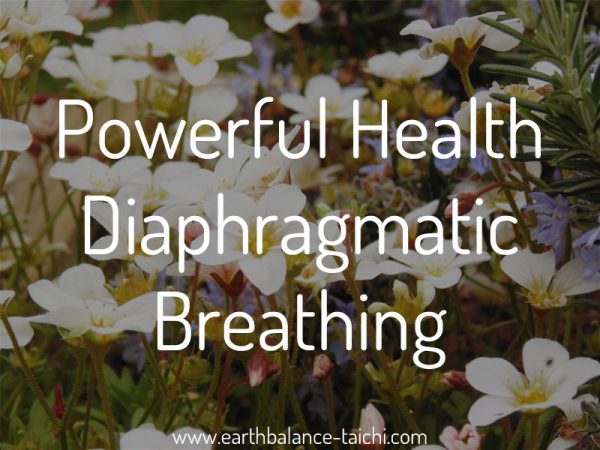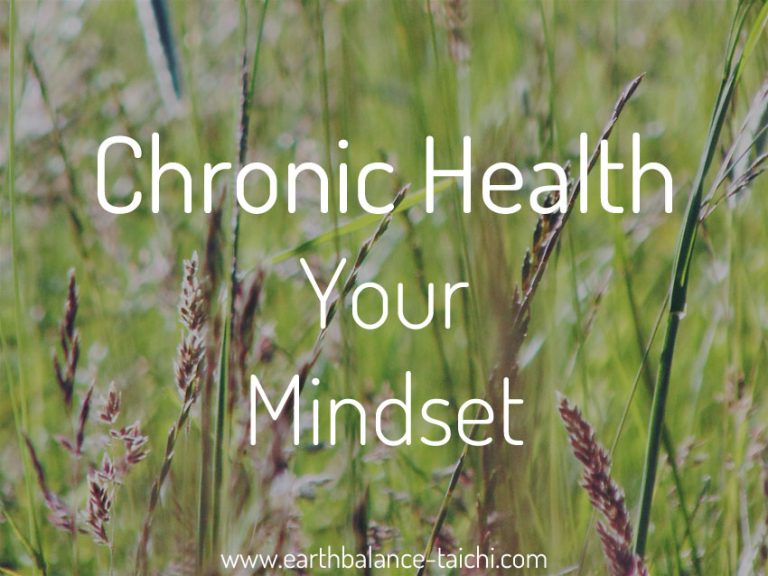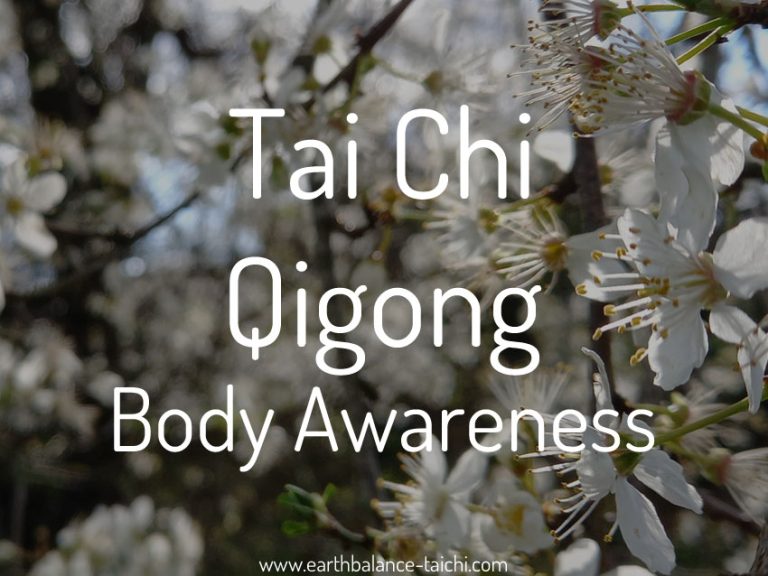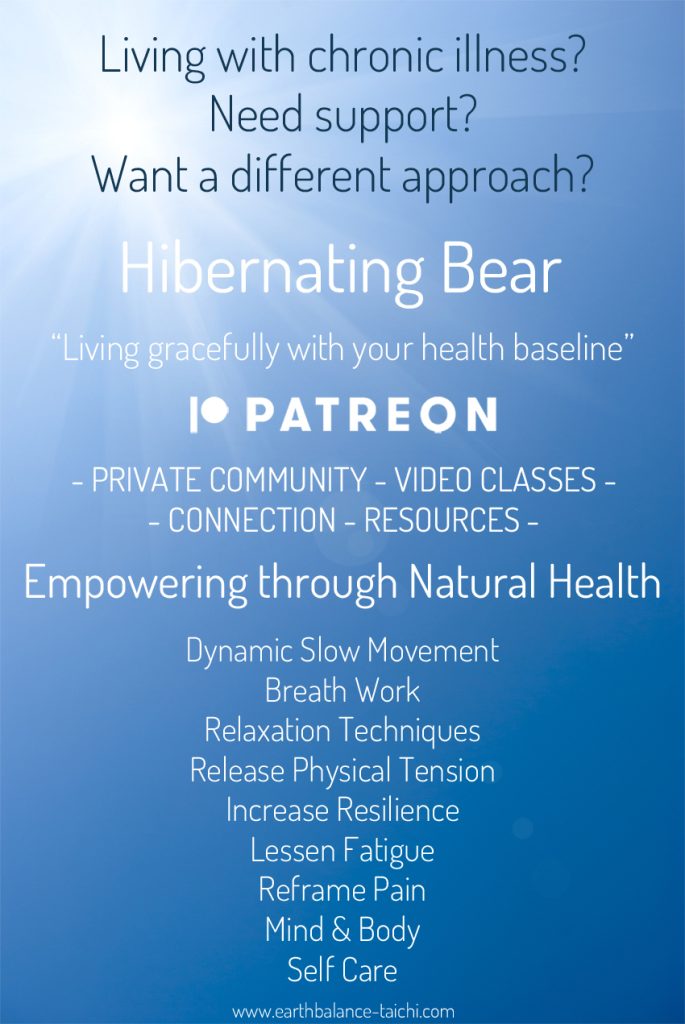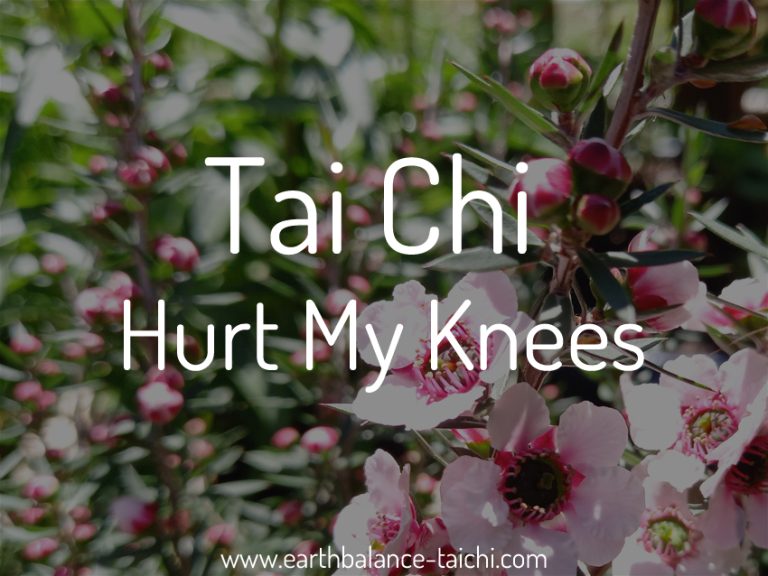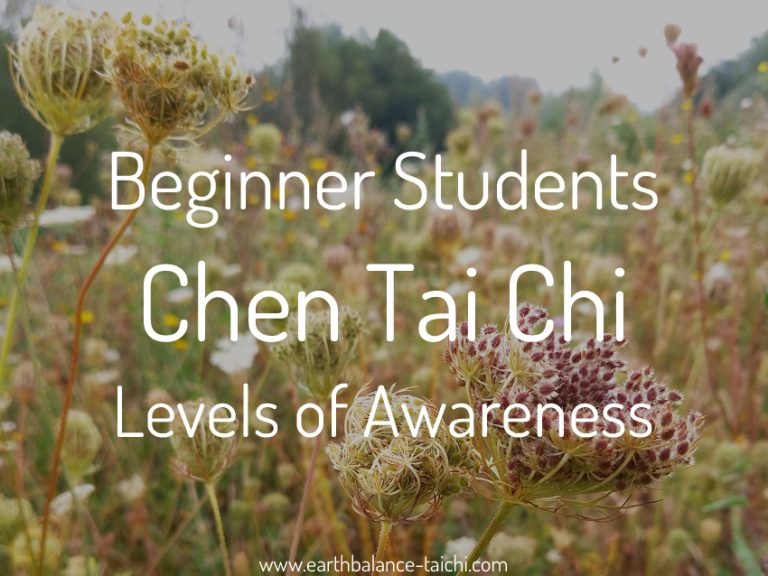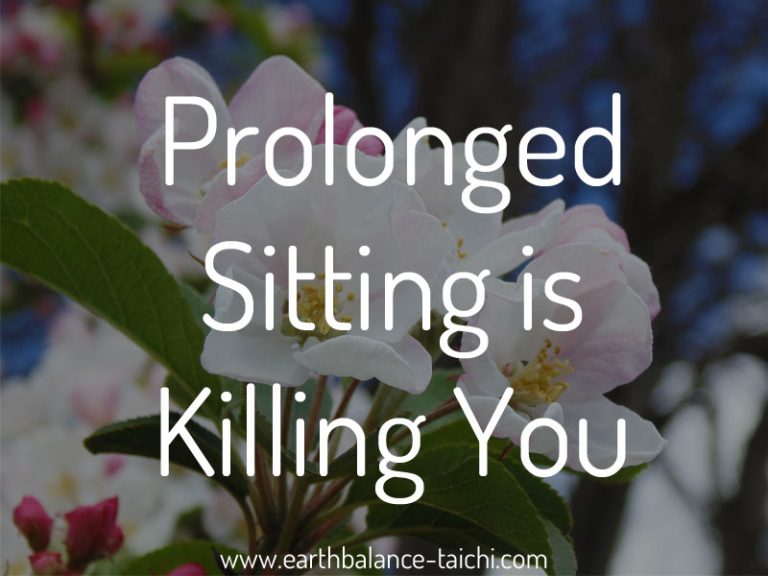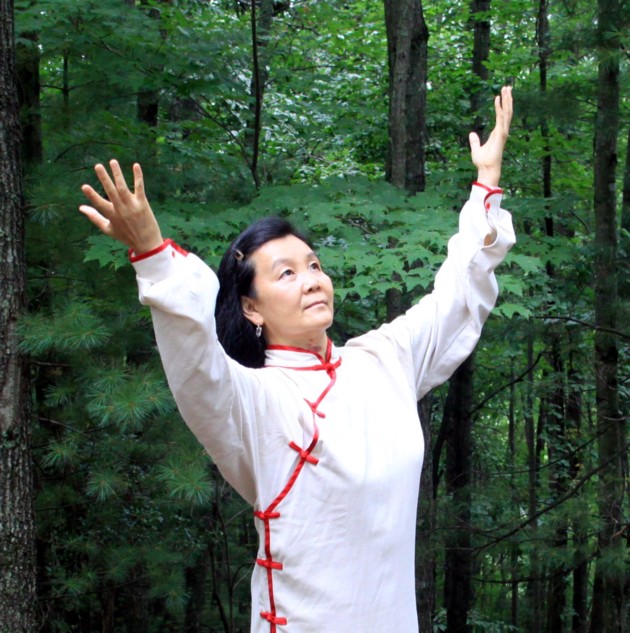Self Managing Chronic Illness
Self Managing Chronic Illness
Your guide to self care. This article on self managing chronic illness looks at the impact of chronic health conditions on every day life and offers suggestions for ways to self manage alongside or outside of Western medical treatment. I myself as a Tai Chi, Qigong and meditation instructor live with a chronic condition that has a daily impact on my quality of life. I draw from my personal experience as well as my professional studies to share helpful resources for those living with a different baseline from the norm. It is possible to improve your quality of life, to build resilience and the ability to cope. Read on to find out about Self Managing Chronic Illness.
Living with Pain
Chronic and acute pain can sometimes be the easiest thing to deal with considering the whole impact of chronic health, and it can also be the hardest and most unforgiving part to deal with. There's no off switch, it can be unpredictable, it demands attention and just when you are making a tiny bit of headway, you get put back a few days, weeks or months. People who do not live with chronic pain simply do not understand life with pain. "Why aren't you screaming or showing you are in pain", and "if I was in pain all the time I would be", or "you don't look like you are in pain". This dismisses your pain through their lack of empathy, experience and understanding. If you do scream and cry or live the pain visibly in your posture or through visceral emotions, then this can make the pain experience and your mental health much much worse. Living with chronic pain needs understanding, not judgement. In some cases you may have to work, live life even when you are experiencing high pain levels, as when pain is constant it may not be possible to take time out. There are ways to help lessen the pain response relating to movement, exercise, posture and alignment, relaxation, releasing muscular tension and reducing stressors.
- Learn body awareness - what triggers pain, what the types and categories of pain are, what helps each type of pain and what makes things worse. Pain is not simply one pain caused by one single thing. It is usually complex and can involve the connective tissue, muscular, bone, skin, nerve, acute, dull, pulsing, when moving, in stillness etc.
- Use pain as a diagnostic - pain demands attention, and it can be an early warning system in the body to listen to, observe and respond. Developing body sensitivity in stillness and movement can help you learn about your body and your boundaries.
- Learn how to soften your pain experience - through gentle exercise, mindfulness and meditation. Find natural methods that help lessen pain.
- Reduce the stress state - stress can cause physical tension which can cause an increase in pain levels, learn to manage your mental health and reduce the stress response in your daily life.
- Exercise daily - endorphins are released when exercising and are a natural analgesic. Physical tension is also lessened when you exercise regularly, as it keeps the soft and connective tissue mobile.
- Change your response to pain - learn how to live with pain without it taking control. How you respond matters. Read more in my article on the absences of resistance.
- Develop health distractions - find what you love to do, a new hobby, learn a language, or a new skill, start an online group, and use your passion to happily distract you from your pain experience. For me this is the most important, to experience joy, laughter and playfulness to help distract you from pain.
Becoming an expert in your own pain experience and knowing your own body are skilled gifts. Read more in my article here on how to manage life with chronic pain. Read more in my article called pain instructs.
Living with Fatigue
There's no off switch and it is a debilitating condition. It can be unpredictable, flares can last for days, sometimes weeks, at worst you cannot speak or move easily. Sadly many people from friends, family, colleagues to medical professionals may dismiss your experience of chronic fatigue. I have heard the phrase "I get tired too" or "just have a good sleep" many times. It's not simply being tired. It is not simply getting a good night's sleep. It's reaching a state where you cannot function. If you have to function, then the force and grit it takes to do a task has consequences afterwards. If you live with a chronic illness which causes pain, then you likely spend your time in bed in pain not able to sleep, with pain-somnia, which has a compounding effect on fatigue, mental health and body functions.
Fatigue means that you may have to limit the activities you do per day e.g. do you wash your hair or cook a nourishing breakfast? As you may not be able to do everything you have to do or need to without hitting a fatigue wall early on. If you work, then typically all of you available energy resources are funnelled into work, the rest is spent in fatigue. It can make your life smaller and smaller which can lead to isolation and poor mental health. This all sounds grim, and it really is an awful way to live, so I would not wish it on anyone.
There are natural ways to support fatigue, to improve your quality of life, and to reduce down some of the triggers for fatigue that are within your control. It can be difficult when so tired all of the time to take positive steps, as initially this can cause more fatigue. Be gentle with yourself.
- Improve your posture - a poorly aligned posture can be exhausting on the soft tissue body. Muscle tightness and pain from a poorly alignment posture can drain your resources unnecessarily.
- Learn breath work - bring more oxygen into the body to boost whole body system functioning.
- Learn to release physical tension - through movement, relaxation techniques and/or mindfulness and meditation. Tight muscles and connective tissue are draining your energy levels 24 hours a day.
- Exercise daily - move your body to improve whole body system functioning, unbind tension, promote toxin removal and release happy hormones, which all aid energy levels.
- Learn to reduce stress - stress has a huge impact on fatigue. Take the time to build a self care kit of techniques that help reduce stress and the known triggers.
- Learn body awareness - listen to your body, get to know where you boundaries are without crashing into them.
- Develop self compassion - let go and release any internal conflict you are holding on to, causing your energy levels to tank.
Read my article on living well with fatigue for my more in depth resources on living well with chronic fatigue syndrome. Read one of my student's experiences of life with chronic fatigue and learning a Qigong practice.
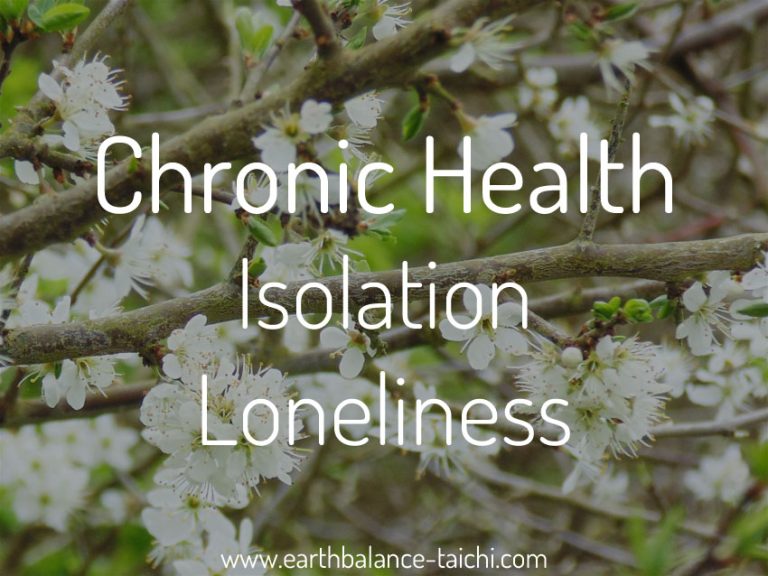
Isolation & Loneliness
One of the by products of living with chronic illness is the increased risk of isolation and loneliness. Living with pain and fatigue often means that there is not much room for anything else but survival on a day to day basis. Whereas before chronic illness you may have been someone who had an active social life, who loved visiting and doing things with friends and family, being out and about, exploring, taking trips and travelling around. Living with chronic fatigue and low energy levels is likely to lead to you spending more time at home, in some cases alone, where your connection with others diminishes. It can be very hard for friends and family to accept that you are unable to live as you did before, that you would love to have the energy or health to be out all the time, but you are simply unable to. You really find out who your true friends and loved ones are, and it is common for friendships and relationships to fade away. This change to life can be difficult to work through, as reducing face to face connection with others has a negative impact on your mental health. You may also be faced with having to cancel plans again and again due to an increase in pain and fatigue etc.
Your world growing smaller isn't what most people with chronic illness had envisaged their lives would be. It is a horrible by product of living with pain and fatigue. You may be at home for the majority of your time. You may have to work and then be at home the rest of the time. It can be debilitating not having the resources to live a fuller and bigger life. The impact this has on mental health cannot be ignored. Your quality of life decreases by living within four walls, especially if you live alone. It can feel like you are watching other people live their lives from a tiny window that you cannot step through. Always observing and never interacting or engaging. Which in turn can be a constant difficult reminder of what your life used to be like and what you feel you have lost out on.
- Being transparent with your friends and family is essential, so they have the opportunity to really understand your needs and what you are going through on a day to day basis. Consider it is a learning process for them as much as it has been for you.
- The online world can help reduce loneliness, with the caveat that online friends can never replace face to face connection and try to avoid spending all day online. Become part of an online community for one of your hobbies or interests, or take an online class.
- Find new ways to connect with other people in your local community, from book clubs to coffee mornings.
- Seek out a befriending scheme for face to face or online support: www.befriending.co.uk or www.ageuk.org.uk
- If you feel that your feelings of isolation and loneliness are too much to work through alone, seek professional guidance from a professional talking therapist. You can self refer into your GP for mental health support or contact organisations like Mind UK.
- If you are in crisis please contact SHOUT or the Samaritans. These organisations have a free and confidential helpline offering mental health support 24/7.

Medical Neglect & Gaslighting
Dealing with medical professionals can be extremely challenging, whether under the NHS or through private health care. I speak from life long experience of trying to navigate health services that do no understand my symptoms or health conditions. In general there is an unacceptable lack of care and support for patients. I have personally been chewed up and spat out by both NHS and private consultants. Where my symptoms have been dismissed, I have not been listened to, not believed, nor supported. Each consultant gives their opinion about naming my health conditions, and they all have different opinions. I have been diagnosed, mis-diagnosed, re-diagnosed over and over again. To continue be told to develop a 'stiff upper lip' and get on with it as there is nothing that can be done is not acceptable.
In allopathic medicine (Western medicine), there is little interest in understanding the root of symptoms, or looking at symptoms holistically considering the whole person, mind and body. The only treatment is to treat the symptoms through pharmaceutical intervention. For those like me, who cannot and will not take pharmaceuticals they have little else to offer. And sadly they have little interest in exploring what else could support. If you have been medically neglected or gaslit by medical professionals then my heart goes out to you. No one sees the toll it takes on mental health to attend medical appointments where you are continually mistreated. No one understands how advocating for your health can be soul destroying, to have to repeat yourself again and again without validation or being heard. To be treated like we are an inconvenience because we ask questions, share research and want to discuss emerging developments in the global medical field. It can be really easy to shut down, keep quiet, avoid appointments and not engage.
- Clear communication is key - whilst you cannot control other people's actions or behaviours, you can control yours. Always be polite and courteous to medical professionals. Prepare for appointments by writing notes, whether questions you want answers to, or prompts for what to say or ask. Become your greatest advocate, be assertive and voice any concerns you have.
- Bring along someone you trust with you along to medical appointments to help support you and remember what has been said.
- Choose your battles - only you will know when to advocate for yourself and when to save your energy. Use your daily resources wisely.
- Where possible explore alternative and complementary medicine, from homeopathy and kinesiology, naturopathy, herbalism, physiotherapy, chiropractic treatment, massage to acupuncture and Traditional Chinese Medicine. There are many modalities of naturopathic medicine that can support and help manage your symptoms. Many of them can run alongside western allopathic medical treatments. It is trial and error to find a natural method that helps you as an individual. Yes it can be expensive and this may be out of reach for many, however you receive the level and quality of care, consideration, attention and treatment that you need. It is worth spending the time and money finding alternative ways to help support your symptoms. Scroll down to the bottom of the page for more details.
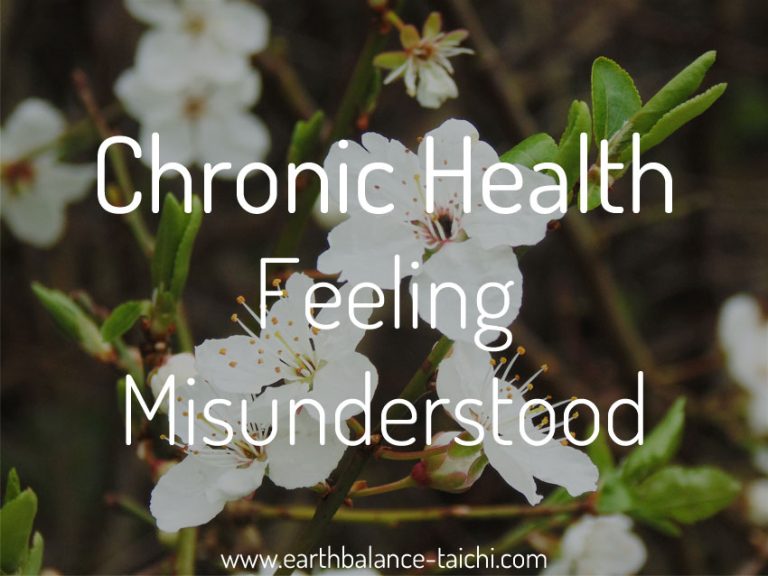
Misunderstood by Everyone
From friends, family, colleagues, work, state services, doctors, consultants, nurses to medical professionals. The most understanding people I have met, are those who live with chronic illness themselves. We are part of a group of people who have boundless empathy for others who live with the same challenges that chronic illness brings. For those who live with rare illnesses and syndromes, being misunderstood is a daily experience. This can be difficult to deal with as it is exhausting to try and continually advocate for yourself, having to explain your condition and symptoms over and over again to different people who stare back blankly. No one really understands the impact your health condition has on your life.
Our society is sadly built around how people look, from facial looks, to muscle tone, body weight and fitness. We have been conditioned since an early age to place worth and value on these meaningless things. Living with chronic illness may mean that you experience physical changes outside of your control. Body image can be a contributing factor to poor mental health when living with chronic illness. When your body changes visibly due to your health it can feel like you have lost control over your life, and can be an ongoing reminder of living with ill health. These changes may be from swelling, inflammation, medication side effects, hair loss, skin changes, scars, weight gain, weight loss, to the use of medical devices, support aids and mobility aids. It is common to develop feelings of low self worth, low self esteem, low confidence, insecurities, worry, anxiety and depression. Take note that life is worth more than looks alone. One of my favourite quotes is:
and he went back to the fox.
"Goodbye" he said.
"Goodbye" said the fox. "Here is my secret. It's quite simple: One sees clearly only with the heart. Anything essential is invisible to the eyes".
With invisible and hidden health conditions the symptoms may not be visible and you may look and act like a healthy human when out and about. Society will also judge you for how you look when living with chronic illness with the examples of "but you don't look sick" or "you look so well". This can feel like you are being dismissed, not believed, unheard and invalidated. People never see what goes on behind closed doors, and they rarely see or know the true impact that chronic health has. You may never see people living with a chronic illness out and about when they are in a flare.
When living with chronic illness, passing off as someone healthy is a nifty trick that can be a double edged sword as it encourages people to think you are fine, when the opposite may be true. I hold my hand up to passing off as a healthy human daily, whether putting on a warm smile when in constant pain or presenting myself in a certain way. It gives me a sense of normality to not live my symptoms, pain and fatigue openly. It helps me cope and actually reduces some fatigue as I just let go of my symptoms and pay them little attention when I am working or out and about.
- Clear communication is key - with friends, families, those close to you. Be open about your health, the challenges you face and the real impact on your life. Whether through conversation, writing letters, emails etc. Find a method of communication that works for you. People who care for you will want to hear your experience and your voice. It is as much a learning experience for the people close to you as it is for you.
- Find people - you don't need to pass off as healthy around, where you can be you.
- Find balance - between feeling misunderstood and being the eager advocate.
- Choose your battles - only you will know when to advocate for yourself and when to save your energy. Use your daily resources wisely.
- Find ways to develop self compassion and self worth - through professional talking therapy or practices that help foster these life skills.
Impact on Mental Health
A much overlooked and under supported aspect of living with chronic illness is the impact on mental health. Most focus on the impact on physical health i.e. what they can see tangibly. I can say from personal experience and from working with a lot of people with chronic illness, that the impact on mental health can be greater than the physical symptoms.
From grieving the things you used to be able to do, that you cannot do now. If you have developed chronic illness early in life, whether childhood or in your 20s and 30s, you can feel like you have been left behind by people around you, especially if you have siblings, friends, colleagues or peers of similar ages. To see others live full lives, through the growth of their personal and professional lives, building careers, having children, setting down etc. These feelings of a life lost or a life never had are a common experience and can really impact on your mental health.
You may also feel like you are a burden on others, like you are an inconvenience when you are unable to do things for yourself and need support and help. This can lead to feeling ostracised from your local community, isolated from connecting with others, and feeling alone with your pain and fatigue. You may also experience internal conflict knowing that time spent resting in bed with chronic fatigue is awful for your mental health, yet you are not able to leave your bed because of chronic fatigue and/or pain levels. And living with trauma and PTSD from hospitals, doctors, operations, injuries etc, where you have been medically neglected and dismissed, to the point you start to doubt yourself.
Some people living with chronic illness may develop social anxiety about how their illness, physical limitations or changing physical appearance will be perceived or judged by other people, whether friends, family, peers, colleagues or strangers. Some may reduce down social interaction, develop anxiety over being out in public or have a fear of dating, relationships and intimacy.
It can be a balancing act of taking the time to do self care when you are exhausted, or exercising when you are in pain, or looking after your physical health when you are feeling depressed and unmotivated. It can take so much grit to keep going. On the sliding scale, balancing both mental health and physical health may not be achieved simultaneously, you may have good days mentally and bad days physically. Good mental health is not a given with chronic illness. There is medical evidence that people living with a chronic illness are more likely to develop poor mental health. You need to work harder to maintain mental fitness than others, and it can feel like an uphill battle.
- Supporting your mental health is paramount.
- Professional talking therapy is an effective way to help offload, reorganise your thoughts and learn strategies to cope. You can self refer into your GP for mental health support or contact organisations like Mind UK. There are both remote talking services and in person services available.
- Communication is key - with friends, families, and those close to you. Be open about your mental health difficulties and discuss how you are feeling.
- Boost your happy brains chemicals - through exercise, playfulness, laughter, meditation etc. Read more in my article on serotonin, dopamine and endorphins.
- Learn about yourself - what helps your mental health, what brings you joy, happiness, what helps foster feelings of self worth and compassion. Find activities, interests, things to do and hobbies that help you relax, be at ease and in the moment.
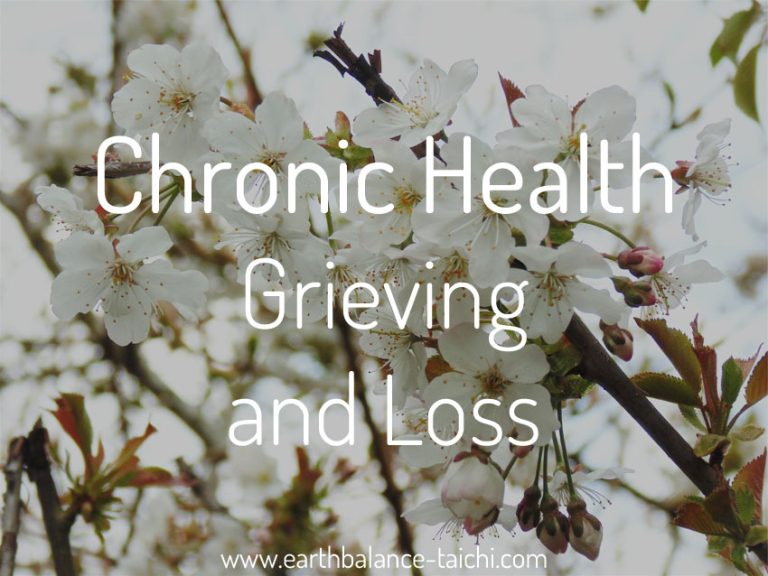
Grieving & Loss
Living with chronic illness may mean going through a grieving process over the life you had before you became ill. In some cases this can happen again and again as your symptoms worsen and the condition degenerates. It is extremely difficult and traumatic to lose your identity without it being within your control. For some people it can be sudden, an overnight change that tips their world upside down in an instant. For others it can be a long and slow drawn out process that happens over many years. Neither is easier than the other, they both suck.
It is possible to build a new identity and live a meaningful life. It does take time and there will be a lot of trial and error. You almost have to die as the person you were, to create space to be the person you are becoming. What helps, and this comes from my personal experience is to find something you can do with your new baseline, that you love, are passionate about, and fills you full of joy. It could be a new hobby, new skill, new routine, new job, new friends, new connections, new way of living. There is great potential in change. You may always grieve the life you had before, I can certainly say that I go through times where the grief and loss feels stronger some days than others, even 15 years after my own health deconstruction.
You may experience common triggers of feelings of grief and loss that can cause a flood of emotions. It may be watching friends or family flourish and thrive in their lives and whilst you have no hard feelings for them, it can trigger a wave of grief and sadness over your own situation. Experiencing two lives / identities within one lifetime can be challenging, as you always have something to compare to, especially when you are struggling with health and know what it was like previously to live a healthy life.
The grieving and loss process is different for everyone and it is often does not follow a line. Whatever emotions and feelings you are experiencing, no matter when, where, how or why, they are all normal. Find ways to feel into these emotions, to express and acknowledge them behind the stories they belong to. The raw emotions are to be felt and honoured.
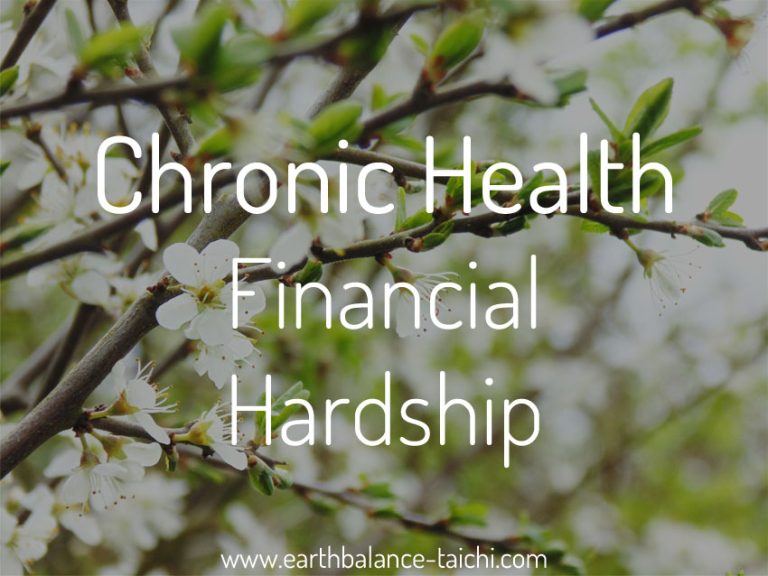
Financial Hardship
Finances are quite the taboo. There is no magic wand for financial hardship and I wish the impact on people living with chronic illness did not extend to financial worry and stress. Sadly this is a reality for most.
Knowing that here in the UK the National Health Service is crumbling where chronic health patients do not receive an appropriate level of care, attention or treatment. Private health care and alternative medicine therapies can be very costly. Trial and error of finding the right treatment model for your symptoms can be very expensive. Not everyone living with chronic illness has the luxury of being able to afford good health care, whether allopathic or naturopathic, yet everyone living with chronic illness deserves that.
Living with chronic illness may mean that you are unable to work, or you may have had to change your job role, or reduce your hours. Out of the all of the people I have known with a chronic illness, from my students to friends and peers, all of them experienced some level of financial hardship. Because there is no off button to chronic illness, this can mean that there is no off button to financial difficulty. As the months and years go by, life can get harder and harder as you try to make ends meet. It can mean you go into debt through no fault of your own. It is an extra burden for many that causes stress and worry.
If you are in employed work within the UK, please self refer into the "Access to Work" scheme, who will carry out a work place assessment if you have a disability or chronic health condition. "Through Access to Work, you can apply for: a grant to help pay for practical support with your work, support with managing your mental health at work and/or money to pay for communication support at job interviews." You can also apply for an occupational health referral through your employer, who can work with you to understand what reasonable adjustments you may need in the workplace. Find out more through ACAS here.
In the UK, you can apply for Employment and Support Allowance ( ESA ) if you have a disability or health condition that affects how much you can work. Find out more here.
You may be one of the unlucky ones who are too ill to work full time, but too well to receive government support. Chronic illness can be very unpredictable and how you are perceived by looks and appearance on any given day does not define your chronic illness experience. Changing careers or job roles to accommodate is something to consider, to find work that can help support your symptoms without going through the boom and bust cycle continually.
If you are struggling to make ends meet there are people you can speak to discuss your finances:
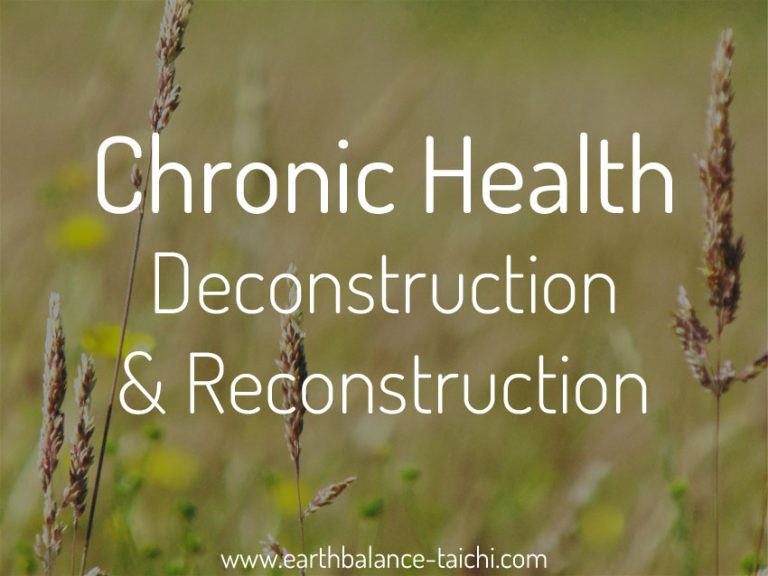
Deconstruction & Reconstruction
This is how I describe the changes that happens when chronic health, illness, accident or injury enters into your life. Going through a sudden and serious change to your health status changes you as a person, you either sink or swim.
The people that go through a health deconstruction have everything stripped away from them. Back to a shell of a mind and body. In that phase there is nowhere to hide, no pretending, no self, no nothing, you are in the rawness of your essence. Whatever you have been hiding behind or hiding from in life is waiting in that space. It is a time to work with your shadow and it is not easy as you are likely in the worst physical and mental state of your life. Sink or swim.
This is an opportunity, the most visceral opportunity you will ever have been given. In this space lies potential. To go inwardly, to find out what really matters to you, to make peace with who you are, to forgive yourself, to forgive others, to forge through, to create from new. Sink or swim.
Deconstruction changes you forever as a person, with the perspective that it is the natural you that is being birthed. You have left an old identity behind, one that may no longer serve you. Those who swim, the reconstruction can take many years, and like the grief process, it doesn't take a linear form. Paddle, swim, paddle, swim.
I am one of those people to have gone through a health deconstruction and reconstruction, mine was overnight when I was 32 years old. Everything changed within 24 hours and was never the same, I was never the same, my body was never the safe, my mind was never the same, and every aspect of my life changed. The people that I have met who have gone through something similar whether my students, or my peers, friends and loved ones, we have this special bond. We know what it truly means to have died whilst living, and to be reborn. What remains after a health reconstruction is only what truly matters in life. It is a deep psychological change that breathes new life. These people are the loveliest, kindest most empathetic and giving people you will ever know.
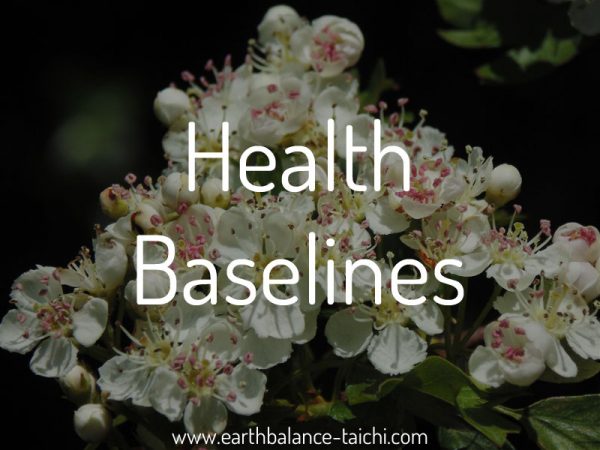
Baselines & Pacing
Self managing chronic illness means to learn to live to your unique changing baseline with grace. To learn to pace yourself and avoid the boom and bust cycle. Many living with chronic illness go through a continual cycle of pushing themselves too far and suffering the consequences, day in day out, week in week out. This only adds to exhaustion levels and increases the likelihood of poor mental health. STOP!
- Adopt the 60-80% capacity rule.
- Count out your spoons each day (read more here).
- Learn your boundaries, flirt with your boundaries, challenge your boundaries, yet don't crash into them.
- Avoid boom and bust.
- What is the path of least resistance?
- Choose your battles (3rd time I've mentioned this).
- Reduce internal and external conflict.
- Reduce stressors.
- What gives you energy?
- What drains your energy?
- What can you outsource?
- What can you let go of?
- Develop body and mind awareness.
- Develop the skill of self compassion.
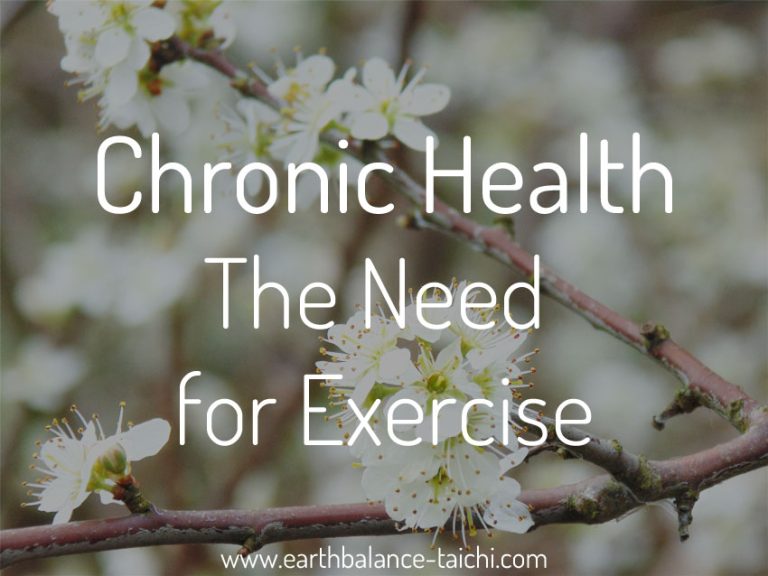
Exercise
One of the most effective self management tools for chronic illness is daily exercise. Whether 15 minutes or 1 hour, you need to move your body daily. Movement is vital to life long health, vitality and wellbeing. When you live with a different baseline from the norm, regular exercise can be the hardest thing to approach when living with chronic pain and chronic fatigue. Medical research states that after only 5 days of inactivity, substantial skeletal muscle loss and loss of muscle strength occurs. Here are a mere few reasons to exercise frequently.
- Helps promote mental fitness.
- Releases happy brain chemicals.
- Releases feel good hormones.
- Helps improve brain function, focus, concentration and clarity.
- Helps reduce and slow the ageing effects on the brain e.g. cognitive decline.
- Promotes new brain cell growth.
- Helps reduce over thinking.
- Keeps you focused on the present, rather than worrying about the past or future.
- Reduces pain.
- Lowers blood pressure.
- Reduces stress levels.
- Strengthens the heart muscle.
- Boost circulation.
- Increases oxygen intake.
- Increases immune system function by up to 50%.
- Improves quality of sleep.
- Helps lower anxiety levels.
- Helps manage symptoms of depression.
- Improves digestion.
- Boost lymph system function which helps reduce inflammation and reduces the chances of diseases and cancers.
- Nourishes the joints, strengthens the muscles and mobilises the connective tissue which are vital to physical mobility and postural health.
- Helps a speedier recovery from injury and illness.
What exercise can you do when living with chronic health? This depends on your symptoms, physical ability, fitness levels and fatigue levels. Walking is a good way to build up to exercise gradually, or consider little or no impact sports if you have joint problems, like Tai Chi, Qigong, yoga, pilates etc. You may want to work with a physiotherapist or personal trainer to help support your symptoms whilst increasing the type of exercise and the duration. The aim is to find ways to exercise that you can develop into a home practice, and tweak as you need to with the ebb and flow of chronic health. If you have been sedentary for a long time, then you may need professional guidance to help you return to exercise safely and slowly. What is paramount is finding something you enjoy doing and doing it regularly.
Absence of Resistance
Living with chronic health can create a lot of internal conflict. Resisting and fighting your symptoms. Resisting and fighting the changes to your life. Holding on, unrelenting, unaccepting. This is another big taboo in the world of chronic illness, to accept. Most people freak out when talking about acceptance as they perceive acceptance as giving up, giving in and succumbing to their symptoms and experience. Acceptance really means the absence of resistance. To stop fighting yourself. You do not need to be in a constant battle, it is so draining on the mind and body. It is doing you more damage than good.
- Can you release the expectations you place on yourself?
- Can you let go of the pressure to perform?
- Can you change your response to your symptoms and chronic health experience?
- What happens when you release all that you have been holding?
Read my article on the absence of resistance in the body. How we train the body to release and let go, to release physical tension, which in turn releases mental tension.
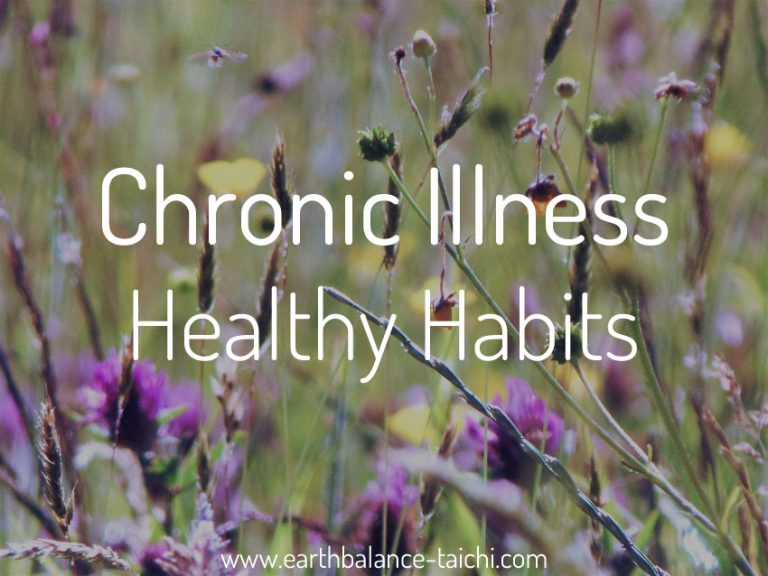
Healthy Habits
Living with chronic health means you may be more likely to develop unhealthy habits. It is really easy to say "develop healthy habits", yet difficult to do daily when you are low on energy, high in pain, unmotivated and feeling low. Taking time to improve your quality of life can seem too much. It's not all or nothing, start with tiny increments and aim low!
Let's use the example of developing a breath work practice. For most people they would think they need to set aside an hour of practice as that tends to be the length of a session when learning in group classes. Then when trying to schedule in an hour of time, it never happens, which is likely to lead to frustration or quitting, as it is too big of a mountain to climb. My recommendation is always start with less than you are able to do. With breath work start with 2 minutes of focus each day and when that feels familiar and comfortable add on another minute. Be consistent and build up your practice, tiny bit by tiny bit. Over time work up to 20 minutes or more. It might take a few months, but it will not feel like effort with such a gradual and slow build up.
It takes about a 1000 repetitions of something to build it into habit, routine or muscle memory. This method of building up a practice slowly helps weave the practice into your daily life in a gentle and compassionate way. The same can be said for healthy eating choices, use of smart phones, exercise, meditation, hobbies etc. What can you approach in a tiny way?
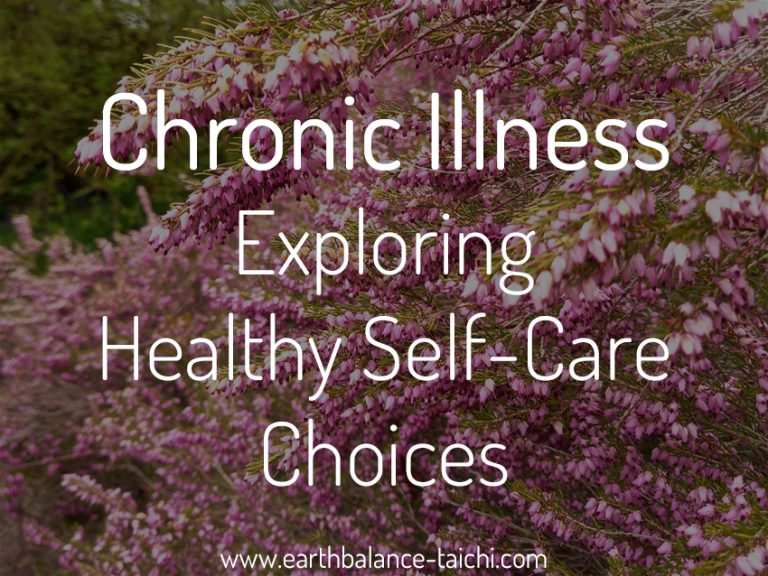
Adding before Subtracting
For people living with chronic illness looking to make a start with healthier choices of self care, it can be a difficult step to take. Some people simply do not know what to do to help themselves in these moments. Some may start by reducing unhealthy choices e.g. self medicating with alcohol, food and drugs. The caveat is to not change everything at once and to avoid the boom and bust cycle, by going from one extreme to another in a short space of time. New lifestyle choices take time to become habits. Take care to avoid creating a void when you stop doing something. You may need to work with a professional to support you through this time e.g. talking therapist, nutritionist, naturopath or functional medicine doctor. Rather than removing your current strategies to cope, replace them slowly over time, adding to your self care, and then slowly withdraw through a transition period. Adding before subtracting.

Integrative Medicine & Complementary Medicine
It is possible to support your symptoms naturally, aside from nutrition, breath work and exercise.
- Explore alternative medicine e.g. naturopathic medicine, homeopathy, herbal medicine, Traditional Chinese Medicine (acupuncture etc) and Ayurveda medicine.
- Explore body work such as physical therapy, deep tissue massage, acupressure, reflexology, cranial sacral therapy, Bowen therapy, Rolfing, Feldenkrais, physiotherapy, chiropractic and osteopathic treatments, infra-red sauna, dry sauna, steam rooms.
- Explore energetic practices such as reiki, sound healing, light therapy, crystal healing, kinesiology, biofeedback, Balneotherapy and therapeutic touch.
- Explore the mind with art therapy, music therapy, hypnosis, hypnotherapy, meditation and mindfulness.
Find what works for you through trial and error. I personally have been on a very long journey of trying as many alternatives to Western medicine as I can. It has been very expensive at times and not everything has worked well for me. We are all individuals and there is no cookie cutter formula. There are many differences between therapists as well, which isn't dependent on qualifications or marketing. Find a therapist who you resonate with, that actively listens to you and is able to professionally support you. As in all of life, use your instinct.
Breath Work
A practice that is often overlooked as being irrelevant because we all breathe right? When living with chronic health, as mentioned before you need to stay as healthy physically, physiologically, emotionally and psychologically as possible. Learning to breathe properly and / or developing a regular breath work practice is at the core of this. My recommendation is to add a 20 minute breath work practice into your daily routine. A simple and easy way to calm the mind and soften the body is by slowing down your breathing rate, breathing deeply and fully whilst focusing on body sensations. Follow along with my breath work course called Nourish through Breath.
- Slows the aging process.
- Increases brain clarity and brain functioning.
- Helps level the emotions.
- Brings your focus to the present, not the past or future.
- Increases body awareness and body sensitivity.
- Massages the internal organs.
- Stimulates the vagus nerve.
- Activates the relaxation response, the rest and digest state.
- Reduces stress levels.
- Reduces the physical symptoms of a panic attack.
- Reduces anxiety levels.
- Improves digestion.
- Boosts circulation and blood flow.
- Increases immune system functioning.
- Increases oxygen levels.
- Mobilises the muscles and connective tissue around the torso.
- Strengthens the diaphragm and pelvic floor.
- Supports lymph function in the torso, aiding toxin removal.
- Helps lessen the pain experience.
- Helps lessen fatigue.
- Can be done when incapacitated e.g. lying down.
- Can be combined with movement e.g. Tai Chi and Qigong.
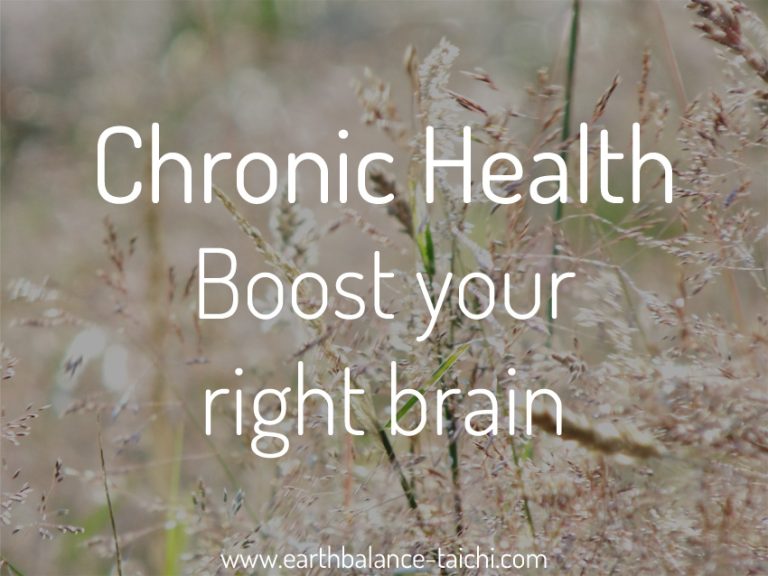
Right Brain
Seek out activities and practices that help explore your right brain. Most people spend all day every day up in their heads, over-thinking, worrying, over-stimulated by technology and modern life, and disconnected from their bodies (aside from their pain experience). Effectively stuck in left brain processing. The right hemisphere of our brain does not get a chance to play. To be healthy humans we need to balance both sides of the brain. The right brain is the feeling brain, the sensing brain, the awareness brain, the creative brain, the artistic, the expressive brain, the imaginary brain, the sensation brain, the bigger picture brain, the subjectivity brain, the emotional brain, the intuitive brain, the visual memory brain, the facial recognition brain, the learning to move in a new way brain (e.g. new choreography in a Tai Chi movement), and the holistic thinking brain. Here are some tips to let stimulate your right brain:
- Breathing through your left nostril is said to stimulate the right brain.
- Play games that focus on visual memory, visualisation and imagination.
- Practice meditation that use visual memory, visualisation and imagination.
- Create art work, from drawing and painting to sculpture.
- Create literary work, poems, stories.
- Create music, sing songs or write music.
- Choose tactile activities that do not rely on technology.
- Read books that explore visual memory, visualisation and imagination.
- Learn new choreography; dancing, Tai Chi, Qigong, martial arts, capoeira, swimming, exercise, movement.
- Develop a child like heart, encourage play, exploration, wonder and curiosity.
- Be spontaneous.
When we are stuck in our left brain, the cognitive, logical, process oriented, intellectual, thinking side of the brain, the right brain weakens. Too much left brain dominance can leave you disconnected from parts of yourself, like your intuition and creativity. Your hand eye coordination, motor functions and ability for complex body movements also reduces down. Like any brain skill, you need to train the brain to maintain functioning. By training the right brain you can expect to boost your creativity, memory, concentration levels and clarity. Our brains need to be used as a whole, stimulating your left and right brain equally will improve brain, mind and body functioning. It is essential for mental health to train both sides of the brain hemispheres. Read more about cross lateral brain connectivity in movement here, and why complex movements are so vital to life long mobility.
Mindset
On a basic level our minds function either in a fixed way or in a growth way. One sees problems the other sees potential. Part of self care is to develop and maintain a growth mindset. It can be hard when you are faced with physical and mental symptoms that restrict your life. However, there is potential in every situation. The potential to explore, play and grow. How you approach living with chronic health will make the difference to your experience. This can be a choice that you make, or something you develop over time through ebb and flow. Read my article on mindset here.
Developing self compassion is one of the most important skills you can foster. To forgive yourself, to care about yourself, to look after yourself and to foster an open heart. Living with chronic illness can reduce down your capacity to be compassionate, especially when experiencing depression and anxiety. As a skill, it is something you need to work at over time. My favourite way to develop self compassion and compassion is through Tai Chi and Qigong. The movements help settle our emotions, open our frame of mind and help us feel more connected to our natural selves. We engage in mindfulness in our practice, allowing and training the mind and body to be fully relaxed, aware and attentive. Through breath work we are able to relax fully and come into the present moment. We become physically and mentally centred in both movement and stillness. The more centred you become the more space and awareness there is for compassion. We see struggle as opportunity in our training and release any holding on that is binding us. When we are aligned with our natural state of being, that helps us discover, accept and love ourselves. This in turn helps us develop compassion for ourselves and others. Read more in my article on fostering self compassion here.
Develop Awareness
Developing awareness is key to managing chronic health. To become an "expert" on your own mind and body, listening inwardly, observing and responding with grace. This increases the ability to work to your baseline and pace appropriately. Which helps to stabilise the joints through walking, movement and exercise, to avoid falling, accident and injury. Awareness is also to become familiar with your emotions, your triggers, your behaviours and your mindset, listening inwardly, observing and responding with grace.
It is common for people to come to Tai Chi and Qigong classes completely stuck up in their heads, who have no connection to their bodies. Whether in movement, sensation, or pain, they are unaware and disconnected. People often come to class to learn the skill of body awareness, which leads onto postural awareness and emotional awareness. Here are some categories of awareness to consider:
Proprioception: Knowing where your body is in space without using your eyes.
Kinaesthetic: Awareness of your internal body movements. Sensing what each part of the body is doing. To be able to detect motion in your own body e.g. body weight, weight shifting. To control and co-ordinate a movement. Muscle memory. To move without relying on vision.
Postural: Awareness of your structural alignment in relation to gravity, comfort and health. Knowing whether you are aligned well or not.
Equilibrium: Awareness of balance and stability in your posture in stillness and movement.
Peripheral: Awareness of the surroundings in the outer part of your vision, what you are not looking directly at.
Tactile: Using touch and feeling sensations through the skin to make sense of your environment.
Ting Jing: Listening inwardly to body sensations and body feedback. This also applies to Tai Chi during partner work and push hands. To detect your partner's body movements and intentions.
Emotional: Being aware of specific emotions as they come and go.

Toxin Removal
The modern world is a chemical onslaught, which makes it a very toxic place to live in. The demands chemicals put on the physiological body is enormous. When living with chronic health you do not need more demands on the body as this can take away precious resources that you do not have e.g. increasing pain and fatigue.
- Consider everything you put on your skin from shampoo, soap, deodorant, make up, moisturiser, shaving foam, shower gel, sun block, fake tan, washing powder, washing conditioner etc. Unless you seek out entirely pure and natural products, you are likely absorbing chemicals into your body through the skin which your body has to deal with and remove again.
- Consider everything you inhale through your mouth and nose, from incense, air freshener, candles, hairspray, perfume, aftershave, washing up liquid, multi purpose liquid, cleaning fluid, soap, shower gel, shaving foam, make up, shampoo, sun block, fake tan, flea spray (for dogs and cats!), glue, soldering, paint spray, wall paint, new carpet smell, new clothes smell, new fabric anywhere smell, wallpaper, new vinyl flooring, vinyl anything etc. All of these offgas airborne chemical toxins, sometimes called VOCs (volatile organic compounds), which you absorb into the body through breathing, which the body has to deal with to remove again.
- Consider everything you ingest, see the nutrition and fluid column to the right.
When living with chronic illness, it is a good idea to remove as many toxins as possible, so that your body resources are not spent tirelessly removing toxins. This makes a huge difference to my quality of life, as I live with multiple chemical sensitivity which means I the smallest amount of perfume sets off a flare in my body. I live as much as possible without chemicals and limit exposure to the unavoidable chemicals where possible.

Nutrition
One of the most important things you can do when living with chronic health is educate yourself and become informed over what you are eating and drinking. The modern diet is full of chemicals and toxins that are damaging to the body. Cleaning up your diet is paramount to managing chronic health. I have worked with naturopaths, Dr's of Chinese Medicine, herbalists and nutritionists over the last 15 years to find out what helps and what hinders the mind and body. Here are my personal recommendations:
- Cut out all processed food and drink.
- Avoid refined sugar.
- Avoid manufactured wheat products.
- Eat foods that are whole and unprocessed.
- Source organic food.
- Source seasonal food.
- Source food from local farms.
- Filter tap drinking and bathing water to remove toxins, chemicals, heavy metals, nitrates, pharmaceuticals, chlorine, fluoride, preservatives, pesticides and fertilisers.
- Avoid any fluids with chemicals which means fizzy pops, energy drinks and anything with chemical sweeteners in it.
- Avoid caffeine, sorry!
You may think this sounds expensive, however when you stop buying processed foods, takeaways, ready meals, sweets and junk food, the savings start adding up. I personally for the majority follow a paleo, keto and unprocessed diet with about a 10-15% tolerance for 'life'. When I consistently eat clean and well, I feel the benefits in regards to my fatigue levels, vitality, clarity, brain functioning and mental health.
The biggest barrier I find to being consistent is chronic fatigue levels, when you are simply too tired to cook a nourishing meal and turn to easy food. Keeping an open tolerance for times you cannot eat well is helpful to avoid that boom and bust cycle. As the all or nothing mindset is likely to lead to nothing all of the time. Plus when you do not eat well, avoid berating yourself over your choices. Life is hard enough as it is without causing inner conflict.
Self Managing Chronic Illness
* Please note that the Taoist practices are not a replacement for conventional medical treatment. Please speak with your doctor prior to starting a new exercise programme, changing your routine or introducing new supplements or therapies. This article is for information purposes only and must not be taken as medical advice. *
